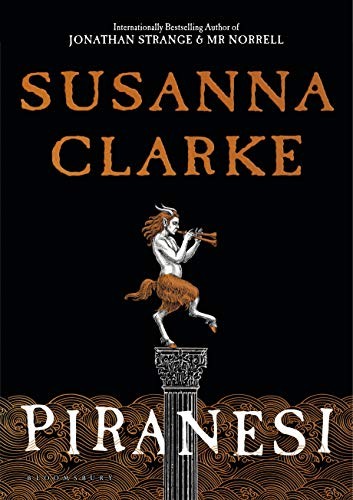I'm glad I read it. There was a hot minute (hour) where I thought it all was going to end badly, which made me realize I really cared about it all.
Reviews and Comments
Seeking a Solarpunk Future
Sci Fi | Cozy Fic | Sustainable Living | Classics | Green Energy | He/Him/His.
This link opens in a pop-up window
Derek Caelin reviewed Middlemarch by George Eliot (Penguin Classics)
Derek Caelin finished reading Strong Towns by Charles L. Marohn Jr.
It was interesting, but I don't think I've finished scratching the itch. I want to figure out how to make a better suburb.
It was interesting, but I don't think I've finished scratching the itch. I want to figure out how to make a better suburb.
Derek Caelin commented on Strong Towns by Charles L. Marohn Jr.
The author of this book is blowing my mind. He argues that U.S. fascination with infrastructure amounts to a "cult" because the monetary value of maintaining it doesn't equal what is invested in it, but we all still believe it's critical.
I'm not saying I agree with this viewpoint, I'm simply flabbergasted that someone would argue it. It's the closest thing to a bipartisan position in the U.S. that the state must invest in infrastructure. I at least want to hear the argument.
The author of this book is blowing my mind. He argues that U.S. fascination with infrastructure amounts to a "cult" because the monetary value of maintaining it doesn't equal what is invested in it, but we all still believe it's critical.
I'm not saying I agree with this viewpoint, I'm simply flabbergasted that someone would argue it. It's the closest thing to a bipartisan position in the U.S. that the state must invest in infrastructure. I at least want to hear the argument.
Derek Caelin finished reading How to Hide an Empire by Daniel Immerwahr
Derek Caelin finished reading Sisters of the Vast Black by Lina Rather (Our Lady of Endless Worlds, #1)
Derek Caelin finished reading The Dispossessed by Ursula K. Le Guin
Derek Caelin started reading The Dispossessed by Ursula K. Le Guin
Derek Caelin finished reading The Book by Alan Watts
Derek Caelin reviewed Piranesi by Susanna Clarke
Mysterious and beautiful
5 stars
I loved the world in which this story is set. An infinite labyrinth of statues and sea, occupied by characters that I wanted deeply to know more about.
You follow the story through the journal of the point of view character. The best parts of the story are, to me, when the writer's and the reader's understanding of events diverge. It felt like a Hitchcock movie, where I, with full access to the main character's thoughts, started coming to different interpretations of information they've received - and what I knew compelled me to keep reading in hopes that the main character would catch up. I also appreciated the themes of the story: kindness, interaction with place, memory, ambition.
I loved the world in which this story is set. An infinite labyrinth of statues and sea, occupied by characters that I wanted deeply to know more about.
You follow the story through the journal of the point of view character. The best parts of the story are, to me, when the writer's and the reader's understanding of events diverge. It felt like a Hitchcock movie, where I, with full access to the main character's thoughts, started coming to different interpretations of information they've received - and what I knew compelled me to keep reading in hopes that the main character would catch up. I also appreciated the themes of the story: kindness, interaction with place, memory, ambition.
Derek Caelin finished reading Piranesi by Susanna Clarke
Derek Caelin rated Piranesi: 5 stars

Piranesi by Susanna Clarke
From the New York Times bestselling author of Jonathan Strange & Mr. Norrell, an intoxicating, hypnotic new novel set …
Derek Caelin finished reading The Saint of Bright Doors by Vajra Chandrasekera
Derek Caelin finished reading Ents, Elves, and Eriador by Tom Shippey
I read this as prep for a book I'm writing on environmentalist themes in Tolkien. The others really went deep, covering each aspect with academic rigor. At first this was frustrating - what do I have to contribute, now? - but it helped me to realize that I no longer had to go academically deep. I could flesh out the themes enough to tie them modern events, and focus on why they matter now. I'm grateful to the authors.
I read this as prep for a book I'm writing on environmentalist themes in Tolkien. The others really went deep, covering each aspect with academic rigor. At first this was frustrating - what do I have to contribute, now? - but it helped me to realize that I no longer had to go academically deep. I could flesh out the themes enough to tie them modern events, and focus on why they matter now. I'm grateful to the authors.
Derek Caelin started reading The Saint of Bright Doors by Vajra Chandrasekera
I'm a few hundred pages in, and of two minds so far. The world of the story is fascinating - a blend of the modern era and mysticism. I care about the main character. But I couldn't tell you what their motivation is, or really, the motivation of any character.
I'm a few hundred pages in, and of two minds so far. The world of the story is fascinating - a blend of the modern era and mysticism. I care about the main character. But I couldn't tell you what their motivation is, or really, the motivation of any character.









